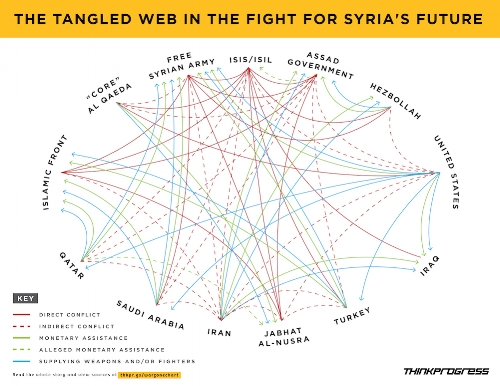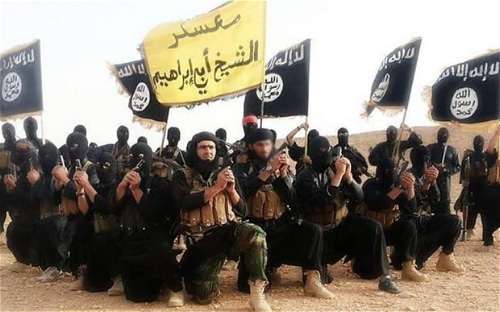It's tough to keep track of the tangled mess of alliances and betrayals that have plagued the Middle East in the past few years. Sometimes, it can feel like the region is a chaotic episode of Game of Thrones (but with more hummus and a more intimidating Wall). Late last month, two of America's allies in the region escalated their conflict between each other. The Turkish military launched an offensive against Kurdish forces in Syria. So what does it all mean and why should you care? This week, we'll focus on America's precarious position between two allies in Syria.
If Jerusalem were colder.
First, let's try to understand who is fighting whom here. In Syria's ongoing civil war, the Syrian military is led by president Bashar al-Assad, who is backed by Russia and Iran. They are fighting against the Free Syrian Army (FSA), which is a collection of rebel forces. They are also fighting extremist groups such as the lingering remnants of ISIS. The FSA is fighting the Syrian military, extremist groups, and the sometimes the Kurds (who are an ethnically and linguistically distinct group living throughout the Middle East). The Kurds are fighting ISIS, the Syrian military (sometimes), and Turkey (they claim land in Turkey). Turkey is mostly just fighting the Kurds. Finally, the United States is fighting ISIS while supporting the Kurds and the FSA, but is also allied with Turkey. So things are a little complicated. And now Turkey is fighting against the Kurds who are helping the United States fight ISIS. To make matters worse, the United States has recently started directly attacking Syrian military positions in response to strikes against the FSA.
No surprise, pretty much everyone hates these guys.
Wait, why do we even have all of these allies anyway? Well, allies help you get things done throughout the world. The Kurds are really helpful because they have helped fight extremism in Iraq and have helped defeat ISIS throughout the region. Without them, the United States would have needed to use hundreds of thousands of American soldiers to do the job (and we all remember how that went in Iraq). On the other hand, Turkey is a powerful nation that has served for decades as a founding member of the North Atlantic Treaty Organization (NATO). If Turkey was forced out of this alliance, it would make it much weaker and risk the outbreak of even more war in the region.
So what do you do when two allies are fighting each other? Think of it like watching too close friends getting in a drunken fight at the bar. One option would be to support Turkey against the Kurds. But that basically ensures there won't be any more help from Kurds to continue the fight against ISIS. Another would be to support the Kurds. However this is not exactly a winning strategy either since they have a weaker army and the United States would lose all remaining support from Turkey in future endeavors (and maybe break up the NATO alliance with it). Finally, the United States could attempt to pull back a bit and support only its core interests in this fight. Basically, this would mean the United States minimizes its criticism of Turkey, but prevents the Kurds from losing too much of its critical territory.
Just be subtle about it at least...
These types of conflicts are the inevitable result of being the most influential nation in the world. It may be annoying that the United States seems to always be caught in the middle of these fights, but this reality also means there is something America can do about these problems. The world is complicated, so simple "solutions" like abandoning all of our allies or bombing the hell out of enemies will probably cause more problems than they will solve. In the choice between two allies in Syria, maybe the best option is one where we don't have to choose between one or the other.




